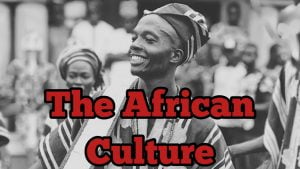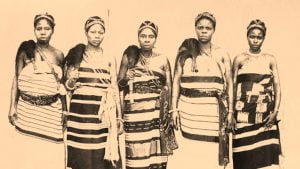It is imperative for every Nigerian to understand the pre-colonial administration of all the tribes in the country. The reason for this is because, understanding these things helps to ensure growth, development and unity in the nation. The Yoruba tribe apparently is one of the major tribes in Nigeria and Africa. We are going to take an explicit look at the nature of the Yoruba pre-colonial political administration in this article.
I therefore enjoin you to painstakingly read this article if you want to gain more knowledge about the Yoruba people of Nigeria.

Also read: Why indirect rule partially succeeded in the West
Brief history of the Yoruba Tribe
History have it that Oduduwa is the founder of the Yoruba pre-colonial administration. He had seven sons who later founded the first seven kingdoms of the Yoruba land and these kingdoms were united under a universal leader known as Alafin of Oyo. Acrimony, animosity and anarchy made the first seven kingdoms of the Yoruba to split into fourteen new kingdom and the central leadership to change from Alafin of Oyo to Ooni of Ife.
Oyo Kingdom was the most developed kingdom in the Yoruba traditional society and it’s system of administration is generally accepted as a model of representation of the whole of the Yoruba land. Generally, the Yoruba kingdom is headed by the Oba who must be a decendant of the Oduduwa. Being a decendant of Oduduwa is a very important prerequisite for acending the throne of the Oba.
Kindly check out the YouTube video below for more information about the history of the Yoruba pre-colonial political system:
Also read: Ways of promoting national unity in a country
Yoruba pre-colonial political administration in Nigeria
The political head of every Yoruba kingdom is the Oba but that of the Oyo and Ife Kingdoms goes with the title Alafin and Ooni respectively. The Alafin as the political head of the Oyo Kingdom is assisted by his son called the Aremo, who is not allowed to succeed him immedatly he dies. Oyomesi is the seven king makers headed by the Bashorun.
Structure of the Yoruba Pre-colonial Administration
The political structure of the Yoruba pre-colonial administration is as follows:
1. Aremo: He is the eldest son of the incumbent Alaafi . He is not allowed to succeed his father at his death, he could only assist the Alaafin, his father, in the administration of the kingdom. The Aremo reigned with his father but is forbidden from succeeding him.
2. Legislative function: The legislative body was made of up of the council-of- chiefs, that is the Oyomesi. The Chiefs met outside the Obas’s palace to take decision which were sent to the Oba for assent through a slave. The Alaafin who was very powerful was advised by a seven member council-of-chief called the Oyomesi. Oyomesi also served as a check on the excesses of the Alaafin. The Oyomesi is also responsible for policy creation in matters regarding the kingdom.
The Oyomesi is headed by the Bashorun who is the highest titled Chief. In the event of misconduct or insurbodination by the Alaafin, the Oyomesi could send an empty Calabash to him, and when this happens, he is left with no choice than to commit suicide.
3. Executive functions: The Alaafin was regarded as the first among equals( Primus inter pares). The most important or senior chiefs gathered at the Alaafin palace to discuss political economic and social challenges and their possible solutions. They decide on the conduct of wars , control and use of land and the kingdom relationship with other kingdoms.
4. The army: Aare On Kakanfo had for long maintained a strong standing army and was in different wars. It was claimed that if the army suffers defeat, the Kakanfo should go on exile or commit suicide.
5. Judicial functions: The council-of-chief exercised judicial functions or powers on serious cases such as murder, land and chieftaincy disputes. Judicial Functions were performed by both the Oba and his senior chiefs, and serious cases such murder, treason, witchcraft, sorcery, arson and burglary you which carries the death penalty were tried at the Alaafin’s court.
The Baale and his Chiefs settled minor cases , but serious cases were referred to the Alaafin and his senior chiefs. The Judicial decisions of the Oba were performed by the age grade ( elegbe). The acted as the police who arrest a d bring erring members to Court.
6. Religious functions: Apart from the Legislative, executive and judicial functions, in Yoruba tradition, the people observed all traditional rites and ceremonies of their kingdom. There were Chief priests of all traditional religions which included Olokun (the god of the sea) and sango (the god of thunder). The Oba who was regarded as the father of all traditional sects and seen as next in command to the gods.

Also read: Reasons for Military intervention in Nigerian
The practice of Checks and Balances in the Yoruba pre-colonial political administration
The threat of deposition, the influence of relatives, the control of the army, public opinion and the influence of the age grades acted as checks and balances between the Oba and his Chiefs in running the affairs the town. In the case of the ancient Oyo Kingdom,the Oyomesi checked the excesses of the Alaafin. The ognoni cult was to mediate between the Alaafin and Oyomesi.
The chiefs sitting in Council made decisions that Oba would rectify. If the Oba and his Chiefs diagreed on an issue, there will be little or nothing that the Oba can do to to coarce his Chiefs. The Oba does not reserve the right to to invite the army to to stop a mass insurrection against his rule, but with the cooperation of the chiefs, he can mobilise forces and pull down a minor rebellion within the kingdom.
The Oba could not depose a chief unless he could be proved guilty of a serious offense or crime against the town as a whole. Thus, the Oba could not easily rid himself of chief, no matter the level of disagreement between them.
The chiefs had far greater powers to coerce their Oba, although it was often difficult to get a unanimous action. They could boycott the palace and govern the town with the Oba, relying on their popularity and influence in the town to ensure obedience to their oders.
This is how far we can go for now in this article. It is important to note that there are still a lot of information about the Yoruba pre-colonial political administration that were not highlighted in this article now, but as we continue to do more research, we will fill them in. Hope you learned a thing or more from this article.

Edeh Samuel Chukwuemeka, ACMC, is a lawyer and a certified mediator/conciliator in Nigeria. He is also a developer with knowledge in various programming languages. Samuel is determined to leverage his skills in technology, SEO, and legal practice to revolutionize the legal profession worldwide by creating web and mobile applications that simplify legal research. Sam is also passionate about educating and providing valuable information to people.
